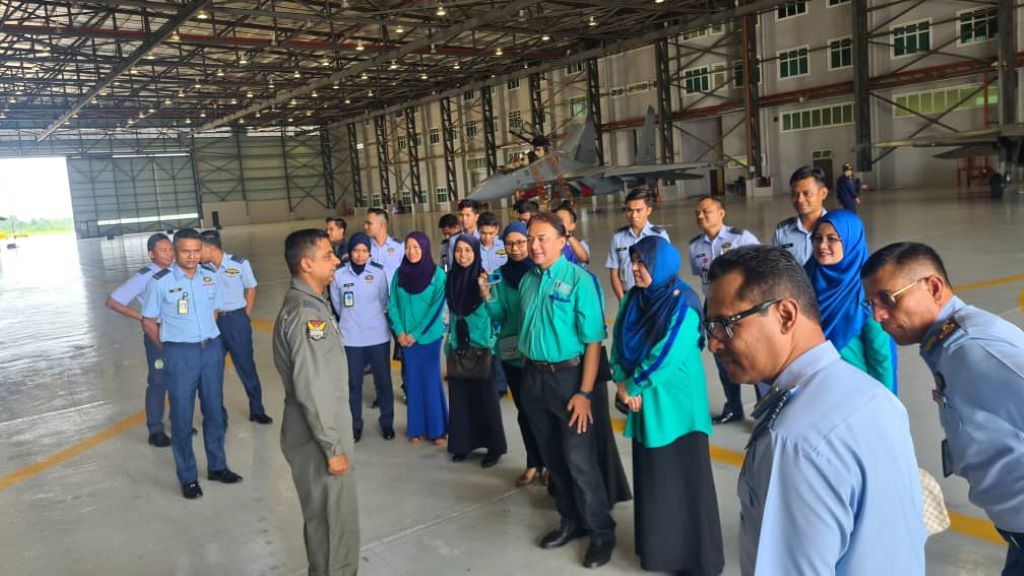"Thank you for your service - Terima kasih atas khidmat tuan": Educating citizens to express appreciation to our armed forces personnel
The attainment of a nation's independence from colonial rule typically stemmed from an enduring struggle fuelled by widespread patriotism. These efforts to secure independence resulted in the establishment of military forces dedicated to preserving the nation's liberty against any potential threats. In the years of the post-independence era, patriotism is woven into a nation's identity via the sacrifices of its military services. Every day, men and women wear uniforms, ready to face the unknown, serve, and defend. Their passion for duty is unshakable and unrivalled. However, within their valour lurks a modest gesture that is sometimes overlooked: a genuine "thank you for your service."
Our armed services members serve as guards, unshakable and willing to walk the hazardous road of duty. They represent the pinnacle of sacrifice, abandoning the comforts of home to protect the nation's sovereignty and its residents' rights. Aside from that, their assistance comes at an exceptional danger. Whether stationed on foreign land or monitoring local boundaries, they confront the unknown with unwavering determination. The threats they face are not abstract concepts, but physical realities woven into their daily existence.
Amid daily living, it's easy to ignore the sacrifices made by our service members and women. However, a simple show of gratitude may cross boundaries, bridging the divide between civilian and military lives. Saying "thank you for your service" is more than a statement; it expresses our collective gratitude for their unselfish sacrifice. As torchbearers of the future, it is our responsibility to teach and train the next generation in the art of thankfulness.
We may start a significant cultural transformation by providing a good example for our children and teaching them the importance of appreciation and respect from a young age. One simple yet effective method to do this is to encourage adults to demonstrate gratitude via the simple act of expressing thanks. When we come across courageous Malaysian army troops dressed in their magnificent uniforms, a sincere "Terima kasih atas khidmat tuan/puan" (thank you for your service) may be a meaningful appreciation of their devotion and sacrifice. This gesture, though seemingly ordinary, holds significant weight. It symbolizes not only gratitude for the individual service rendered but also respect for the institution they represent and the noble cause they uphold. It communicates a deep understanding of the challenges they face and the commitment they demonstrate to safeguarding our nation's security and prosperity.
Imagine the impact of this gesture rippling through our society. In casual encounters with uniformed personnel, whether at community events, public gatherings, or simply passing by on the street, the expression of gratitude becomes a norm—an ingrained part of our social fabric. Such acts of acknowledgement not only uplift the spirits of the army staff but also foster a culture of mutual appreciation and respect among citizens. Furthermore, this behaviour goes beyond just niceties. It helps to foster a sense of patriotism in our children. Children learn the value of acknowledging and valuing others' accomplishments when they see adults show thanks to those who serve our country. They gain a strong feeling of pride in their country and a deep knowledge of the sacrifices made by its defenders. As these children develop, they inherit not just their parents' ideals, but also the communal ethos of a thankful and patriotic nation. They become active players in our nation's continuous story, exemplifying the values of service, sacrifice, and camaraderie. With each generation, the spark of patriotism is rekindled, blazing stronger in the hearts of our people.
Finally, the influence of this simple yet powerful act reaches well beyond the present moment. It establishes the framework for a community based on mutual respect, appreciation, and a shared dedication to the greater good. It also strengthens the links that bind us as Malaysians, transcending differences in background, belief, and philosophy. In essence, by embracing the practice of expressing thanks to our military services, we not only elevate the spirits of those who serve, but we also plant the seeds of a brighter future for our country - a future founded on the timeless values of respect, gratitude, and patriotism.
By imparting the importance of recognising our armed troops' sacrifices, we plant the seeds of patriotism in the hearts of tomorrow's leaders. We foster a passion for our nation that has no bounds by cultivating appreciation. When the younger generation learns to understand the sacrifices of those who serve, they acquire a deep regard for the principles and ideals that underpin our society. This admiration becomes the foundation on which their willingness to serve is founded.
To summarise, the enormous sacrifice of our military forces service members is a pillar of our country's strength and resilience. By teaching folks how to show gratitude with a simple "thank you for your service," we not only honour their efforts but also foster a sense of patriotism that will last for generations. Let us join in appreciation, standing in solidarity with those who serve, for they protect our liberty and the keepers of our future. These courageous warriors left their homes in the morning to serve the nation, not knowing if they would be able to return at the end of the day.
In our utmost gratitude and remembrance of their sacrifices, we pray that May Allah grant them, the victims of the recent military helicopter crash, the highest rewards, place them in the highest place of Jannah and rest their souls among the martyrs. We pray that their families are given strength and perseverance during this difficult time. Al-Fatihah.


Writer is a Senior Lecturer and Senior Language Teacher at Centre for Modern Languages, Universiti Malaysia Pahang Al-Sultan Abdullah (UMPSA).
This is the personal opinion of the writer or publication and does not necessarily represent the views of UMPSA.
E-mail: adnan@umpsa.edu.my and nursya@umpsa.edu.my
- 249 views










